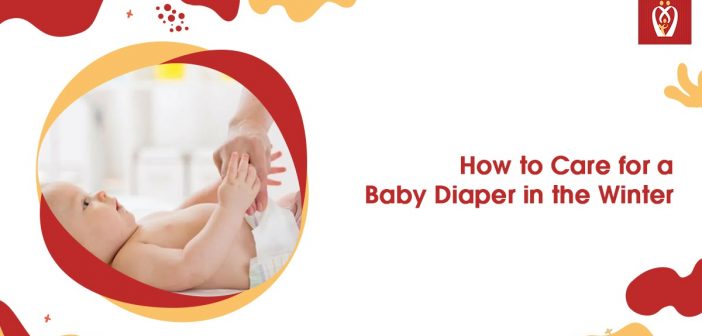Throughout the year, special care should be taken to protect the skin of infants, especially those who have extremely delicate skin. As parents, it is our responsibility to be aware of and prepared for the changes that each season brings. The skin of a baby can be particularly vulnerable during the winter months. And if your baby is still in diapers, whether disposable or cloth, it’s critical that you understand how to keep their skin moisturized and prevent it from drying out.
Massage and a bath
Taking a bath is a great way to bond with your baby and have fun together! Soap should only be used once or twice a week, not every day. For the remainder of the days, all that is required is a fast bath with a few drops of coconut oil and some clean towels. After the bath, dress the child in a layered look made up of loose cotton garments.
If you have a baby, don’t wear any synthetic clothing because it can cause allergic responses in babies with sensitive skin. Don’t over-wrap your child. BMR is high in infants because of this, which makes them feel a lot more comfortable. Babies benefit from oil massages. When massage, use light oil and short, soft strokes rather than longer ones.
Keep Diapers Clean and Replace Them Frequently
Keep an eye on the baby diapers throughout the winter because youngsters pee more frequently during this season. Make sure to thoroughly clean the genital area before changing diapers every two hours. Using wet diapers for a long time might cause rashes and other skin irritations. As a result, protect the area by liberally slathering with diaper rash lotion.
Type of baby diapers
If you and your infant are both happy with the one you choose, it is entirely up to you. It is imperative that you keep the baby clean and dry at all times. To keep their babies dry and warm, most parents opt to use disposable ones during the winter. When using cloth diapers, be sure to wash and dry them well, and preferably in the sun. However, if this isn’t an option, be careful to dry the clothes in a dryer. Using baby diapers that are too tight is another issue to keep in mind. Going up a size is a smart idea from time to time, especially during the colder months.
Choice of Clothes in Winter
The importance of keeping your child warm in the winter does not necessitate swaddling them in multiple layers of clothing. Remember that rashes can also be caused by excessive heat. As a result, they should be dressed in full pants, but simply enough to keep them warm. When wearing baby diapers, avoid wearing tight-fitting bottoms. Use pyjamas, pants, or warmers that are soft and comfortable.
Food and Nutrition
Nutrition and hydration must be maintained in the correct proportions. When a baby is breastfed, he or she doesn’t require any additional water. After six months, however, only boiling, cold water should be provided to them.
Every day, a baby needs to urinate six to eight times. The baby gets dehydrated if his or her fluid intake falls below this level. Breastfeeding your infant more frequently or increasing their water intake is a good idea if that’s the case. Avoid feeding your youngster big servings of food. Feed them every two to three hours with little snacks. To keep them energised and nourished, serve them a variety of fresh juices, soups, mashed and pureed fruits, and other nutritious foods.
Babies should begin eating solid foods such as rice paste combined with milk, a teaspoon of lentils, and so on, after six months of age. Once the youngster has become acclimated to eating solids, introduce them to grains. Don’t forget to offer them at least 6-7 cooled boiled water intakes in addition to solid food.
Some Diaper free time is a must
At least 10 to 15 minutes of diaper-free time must be given to your infant each day, regardless of the season. This will keep your baby’s bottoms dry and aerated, preventing friction and rashes.
Do’s and don’ts of using diapers
- Baby diapers have become an essential part of baby care. Diapers should be checked for quality by parents before purchasing.
- In the event of a diaper rash, use a doctor-prescribed rash cream. Use them on the baby’s bottom a couple of times a day.
- The diaper should be changed every four to five hours, as soon as it becomes wet.
- In order to avoid a variety of skin issues, no baby should be diapered at all times.
- Babies must be diapered when they are napping in the afternoon or sleeping at night.
- Diapers ensure a good night’s sleep for both babies and their mothers. Mothers, on the other hand, must ensure that their kids’ skin can breathe by removing their diapers at least once every several hours.
You can now keep track of your baby’s vaccines, health exams, and other data with the help of Nurturey’s Pink Book. In addition to these features, you can also create a family account, schedule appointments, and receive personalised NHS information. Download the app now!







